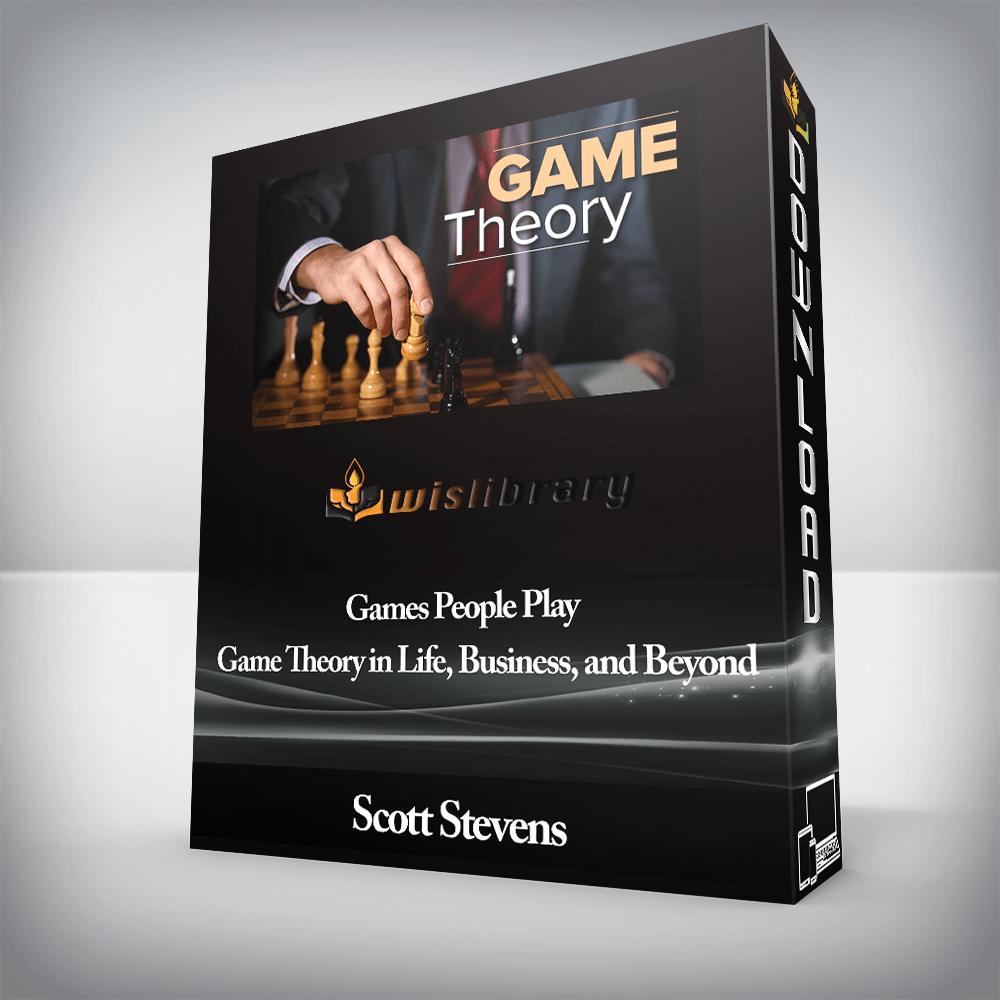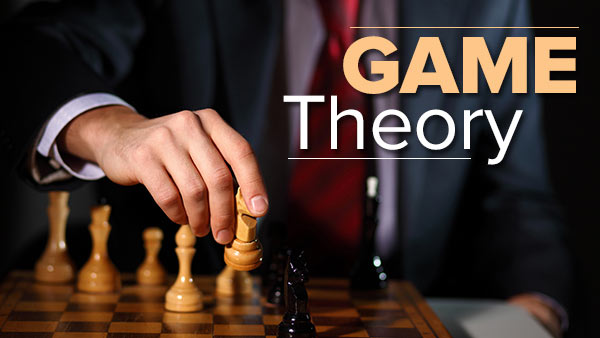

Learn the Basic Games on which More Complex Interactions Are Built.


If you keep your eyes and mind open, you’re going to find a lot of other places that our ideas apply.
Institution: James Madison University
Alma mater: The Pennsylvania State University
Ever since modern game theory—the scientific study of interactive, rational decision making—achieved prominence in the mid-20th century, it has proven instrumental in helping us understand how and why we make decisions. Game theory plays a crucial role in our lives and provides startling insights into all endeavors in which humans cooperate or compete, including biology, computer science, politics, agriculture, and, most importantly, economics.
For example, game theory
You can even see game theory at work in the interactions you engage in every day, such as an obvious “game,” like buying a car, or a less obvious one, like trying to decide where to go on a Saturday night or how you ought to dress.
A basic working knowledge of this profoundly important tool can help us cut through an often confusing clutter of information—allowing us to make better decisions in our own lives or better understand the decisions facing other players in games. In Games People Play: Game Theory in Life, Business, and Beyond, award-winning Professor Scott P. Stevens of James Madison University has designed a course meant for anyone looking to gain that knowledge. In 24 insightful lectures, he presents you with the fundamentals of game theory in a manner that is both engaging and easy to understand.
Learn the Basic Games on which More Complex Interactions Are Built
Any game can be described as an interaction involving two or more players who share a common knowledge about the game’s structure and make rational decisions about the strategies that will best achieve the maximum possible payoff.
But along the pathways that lead from that basic description to the far more complex games that can be built from it—from billion-dollar negotiations to nuclear confrontations—you find a fascinating collection of questions. Are decisions being made simultaneously, with players not knowing what others are doing? Or are they made sequentially, with each player’s decision following another’s? Are binding agreements between players possible? Is the element of chance involved? Do all players have the same information? As these questions are answered, games can take different forms, and planning a strategy requires basic analytical tools.
Professor Stevens introduces you to those tools by exploring several classic games, each involving two players who can make one of two choices. Translating them into everyday examples, Professor Stevens shows how these games occur everywhere, from casual life to business to international diplomacy:
If neither confesses, they each get a one-year sentence. If both confess, each gets three years. And if only one confesses, he goes free, but sends his partner away for five years.
This perplexing game, in which logic points to a strategy for each prisoner that is clearly best, yet nevertheless provides a worse outcome, surfaces repeatedly in the course, as it does in real life.
But as these lectures make clear, that isn’t unusual. For the ideas that underlie game theory are everywhere, their practical applications appearing repeatedly:
Meet Game Theory’s Most Important Minds
Just as these lectures introduce you to game theory’s most important ideas, they also introduce you to many of its most important minds:
Focus on Game Theory’s Basic Ideas
While game theory is rooted in mathematics, this course requires nothing more than a basic understanding of how numbers operate and interact. Each lecture in Games People Play features visually rich graphics that help you grasp the simple mathematical ideas underlying this fascinating field of study. Despite the apparent complexity of game theory, Professor Stevens always makes the subject matter accessible and easy to understand.
Taught with relish and wit by a teacher as amiable and easy to understand as he is knowledgeable, Games People Play instills a new awareness of the games hidden at the core of the most complex arenas of corporate negotiations and foreign policy, as well as the most basic encounters of our daily lives.
1The World of Game Theory
2The Nature of the Game
3The Real-Life Chessboard—Sequential Games
4Life’s Little Games—The 2×2 Classic Games
5Guessing Right—Simultaneous-Move Games
6Practical Applications of Game Theory
7A Random Walk—Dealing with Chance Events
8Pure Competition—Constant-Sum Games
9Mixed Strategies and Nonzero-Sum Games
10Threats, Promises, and Commitments
11Credibility, Deterrence, and Compellence
12Incomplete and Imperfect Information
13Whom Can You Trust?—Signaling and Screening
14Encouraging Productivity—Incentive Schemes
15The Persistence of Memory—Repeated Games
16Does This Stuff Really Work?
17The Tragedy of the Commons
18Games in Motion—Evolutionary Game Theory
19Game Theory and Economics—Oligopolies
20Voting—Determining the Will of the People
21Auctions and the Winner’s Curse
22Bargaining and Cooperative Games
23Game Theory and Business—Co-opetition
24All the World’s a Game
There are no reviews yet.
You must be <a href="https://wislibrary.org/my-account/">logged in</a> to post a review.